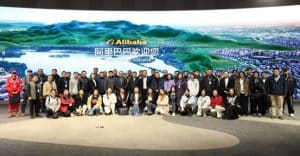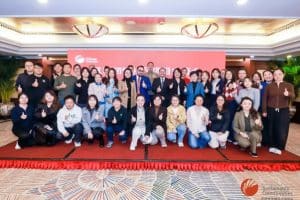Wu Chen discusses a weakness of China’s grassroots NGOs that prevents them from fully participating in international development discussions: their lack of English language skills and familiarity with international perspectives.
Apple and its supplier Foxconn have faced constant criticism from NGOs in recent years. In China and other developing countries, labor NGOs have launched various advocacy campaigns targeting overtime work, protecting wage guarantees and the right to lodge complaints. The results, however, have been mostly the same. Companies took no concrete actions and as a result the cases remained unresolved. In Mexico, Foxconn were even able to fire labor activists while labor NGOs stood by powerless.
There is a global consensus that it is almost impossible for a single organization to effect change when going up against powerful multinational corporations. Even when many NGOs in the same country collaborate, their influence remains weak. As members of the Chinese NGO community, if we wish to protect the legal rights of migrant workers, and ensure that the operations of Chinese overseas companies and foreign multinational companies in China are in line with internationally recognized norms, we need increased international dialogue.
As the process of globalization seeps into every aspect of our personal lives, NGO practitioners need to change. We must be able to look beyond the horizon and put theories into practice. This, however, does not necessarily mean mastering cutting-edge theories put forth by the international development community. Rather, it means that in our daily work, we will need to adopt international frameworks in resolving social issues, especially those that have expanded beyond the borders of a single country.
Unfortunately, those international frameworks (for example the treaties and policies promulgated by the UN, World Bank, OECD, etc.) are generally written in English. What we need is not just the ability to understand written English, but also to develop fluency in spoken English. Using English to communicate with NGO practitioners from other regions, to master this “living knowledge,” is one way for us to put theory into practice. Although local NGOs, especially labor NGOs, face unique local problems and obstacles, other manufacturing regions in Southeast Asian share much in common with China with regards to environmental protection and labor problems. Once we stop acknowledging that China’s issues are idiosyncratic and start learning the strategies and techniques that NGOs from other countries employ, we will then, perhaps, be one step closer to a solution.
As one of the world’s top 500 companies, Foxconn’s core competitiveness as a manufacturing company lies in being able to offer cheap labor. Thus, its factories are usually located in developing countries, where the disparity between rich and poor is extreme. Due to the government’s cozy attitude towards foreign investment, labor costs remain at relatively low levels, and labor rights and environmental safety legislation and implementation are weak.
If we analyze the technology behind Foxconn’s products, we will find that all they need is a few human and robotic hands. This goal reflects the future of the electronics subcontracting industry. With robotic technology still developing, Foxconn’s attempts to turn human beings into robots have aroused the outrage of NGOs worldwide, most of all Chinese NGOs, which feel powerless to act in response to the string of suicides in Shenzhen’s Foxconn plant.
If we divide the work that NGOs worldwide have carried out with regard to Foxconn, we can identify the following four levels of influence:
1) Plant-community level. Many NGOs have focused on this level, and they are therefore able to build long term relationships with workers and distinguish the needs of workers and communities more clearly. NGOs at this level can coordinate negotiation between workers and management personnel while bringing in the media, scholars and other outside resources.
2) Company level. Generally speaking, most companies will have corporate social responsibility guidelines and dispute resolution processes. NGOs will file demands for improvements in labor practices based on these publicly available documents. Sometimes, NGOs bypass the company and file protests directly with the purchasing companies, especially European or American companies with prominent brands that adhere to more extensive codes of conduct .
3) National level. In nations and regions with relatively comprehensive legal systems, NGO will assist workers in filing arbitration claims. NGOs choose to carry out most of their work at this level.
4) International level. Although many international institutions such as the UN and the World Bank have already introduced mandatory and voluntary conventions and regulations, it is hard to evaluate their effects due to the complicated procedural requirements and long waiting time. For Chinese NGOs, the language barrier is another obstacle, making it difficult for Chinese grassroots NGOs to participate at this level. This is especially true for Chinese NGOs that engage in labor rights and rural development issues. Except for a few training and exchange opportunities in Hong Kong and Taiwan, they are rarely heard outside Chinese-speaking regions.
Despite the work of NGOs at all these levels, there is still a desperate need for interaction and collaboration between these different levels. Those who are able to speak at the international level are mostly U.S. and European NGOs. When it comes to discussing the current situation in China and what NGOs in China have experienced in their everyday work, we can only rely on limited and sketchy reports, and exaggerated or misinterpreted reporting in English-language newspapers. The result is that each NGO fights its own battles with regard to each specific situation or problem. If it needs to verify facts, unreliable information sources can harm its advocacy work.
Chinese NGOs generally view those with English-language skills as lacking in practical experience. What NGO practitioners who deal directly with farmers and workers fear most is that they cannot speak the language of their beneficiary groups during interviews. If by chance they happen to use an English word and cannot come up with its Chinese equivalent, they are sure to be the laughingstock of other NGO practitioners. Most NGO practitioners working in the frontlines, particularly those directly engaged in servicing and safeguarding the interests of disadvantaged communities have, despite their university degrees, inevitably neglected to improve their English because of lack of opportunities to use it. However, in the globalization process’s complex division of labor, focusing solely on the experience of one particular region, may lead us to adopt a parochial view. Therefore, it is beneficial for us to draw upon the diverse perspectives of different regions and levels, and use existing policies to carry out our work at an international level. By implementing these ideas, we may be able to improve on our current stop-gap measures.
At this point, if we can recognize the importance of carrying out work at the international level for Chinese NGOs , then it is crucial that we find more platforms for international dialogue and help NGO practitioners improve their English-language proficiency. Previously, the Open Society Foundation provided funding for Friends of Nature and other NGOs to organize a program to improve the English of Beijing’s NGO practitioners. Unfortunately, this program was not continued. We hope for further funding to provide NGO practitioners with similar opportunities. From a long-term perspective, it is better to provide English-language training to NGO practitioners working on the front lines than to pour more resources into leadership training to avoid creating a group of elite, internationally-oriented NGOs that are removed from local community needs. This will be more beneficial to the growth of civil society in China.



